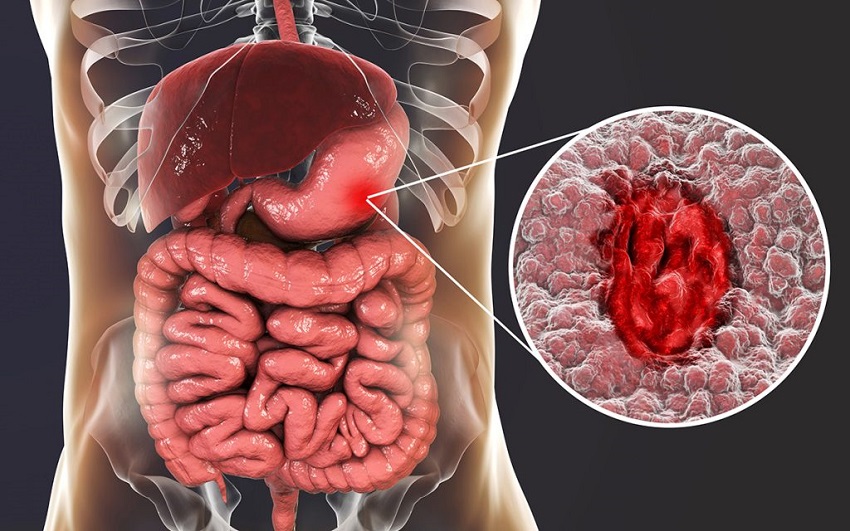
29 Jul Can Ulcers Heal on Their Own?
Have you ever experienced a burning sensation in your stomach that seems to linger for days or even weeks? Chances are, you might have had an ulcer. Ulcers are a common medical condition that can cause discomfort and pain in the abdominal region. But the question is, can ulcers heal on their own? In this article, we’ll delve into the world of ulcers, exploring their causes, symptoms, and whether they can heal without medical intervention. This article is provided by anxietyfightersguide.com
Understanding Ulcers: What Are They?
Ulcers are open sores that develop on the inner lining of the stomach, small intestine, or esophagus. The most common types of ulcers are gastric ulcers that form in the stomach and duodenal ulcers that occur in the upper part of the small intestine, also known as the duodenum. These sores can be painful and often lead to discomfort, especially during or after eating.
Causes of Ulcers
For many years, it was believed that ulcers were primarily caused by stress and spicy foods. However, medical research has revealed that the primary culprit behind most ulcers is a bacterial infection known as Helicobacter pylori (H. pylori). This bacterium weakens the protective lining of the stomach and duodenum, making them susceptible to acid damage.
Another common cause of ulcers is the use of non-steroidal anti-inflammatory drugs (NSAIDs) like aspirin and ibuprofen. These medications can irritate the stomach lining and lead to ulcer formation, especially when used for prolonged periods or at high doses. In addition, stress ulcer can also develop when a person is under a lot of stress for a prolonged period of time. It’s important to manage stress levels and avoid overusing NSAIDs to reduce the risk of developing ulcers.
The Role of Diet and Lifestyle
While H. pylori and NSAIDs are major contributors to ulcer development, certain dietary and lifestyle factors can exacerbate the condition. Spicy and acidic foods, excessive alcohol consumption, and smoking can worsen ulcer symptoms and delay the healing process.
Symptoms of Ulcers
Ulcers can manifest with a range of symptoms, and not everyone experiences them in the same way. Common signs of ulcers include:
- Burning Sensation: A burning pain in the stomach, often occurring between meals or during the night.
- Nausea and Vomiting: Feeling nauseous and experiencing occasional vomiting.
- Indigestion: Discomfort or bloating shortly after eating.
- Unintended Weight Loss: Chronic ulcers can lead to unintended weight loss due to reduced appetite and discomfort while eating.
- Dark Stools: In some cases, ulcers can cause bleeding, resulting in dark or tarry stools.
- Fatigue: Chronic pain and discomfort can lead to fatigue and a decreased quality of life.
Can Ulcers Heal on Their Own?
The good news is that in many cases, ulcers can indeed heal on their own. The body has a remarkable ability to repair damaged tissues, including the lining of the stomach and duodenum. When the underlying cause of the ulcer is addressed, such as eliminating H. pylori infection or discontinuing NSAID use, the body can initiate the healing process.
Factors Affecting Ulcer Healing
Several factors can influence the healing process of ulcers:
1. Size of the Ulcer
Smaller ulcers are more likely to heal on their own compared to larger ones. Larger ulcers may require medical intervention to promote healing.
2. Health and Age
Individuals in good overall health, especially younger people, tend to heal faster than those who are elderly or have underlying health conditions.
3. Adherence to Treatment
Following the prescribed treatment plan, such as taking antibiotics for H. pylori eradication, is crucial for successful healing.
4. Dietary and Lifestyle Changes
Making appropriate changes in diet and lifestyle can alleviate symptoms and accelerate the healing process.
When Medical Intervention is Necessary
While many ulcers can heal on their own, there are situations where medical intervention becomes necessary. If the ulcer is large, deep, or shows no signs of improvement after several weeks, a healthcare provider may recommend further evaluation and treatment.
Conclusion
Ulcers can be a painful and uncomfortable condition, but the good news is that they often heal on their own. Addressing the underlying causes, making positive lifestyle changes, and following medical advice can help speed up the healing process. Remember, if you suspect you have an ulcer or are experiencing persistent abdominal pain, it’s essential to consult a healthcare professional for a proper diagnosis and personalized treatment plan.
FAQs About Ulcers
- Can stress alone cause ulcers?
While stress can exacerbate ulcer symptoms, it is not the primary cause. H. pylori infection and NSAID use are more common culprits.
- Can I drink alcohol if I have an ulcer?
It’s best to avoid alcohol as it can worsen ulcer symptoms and delay the healing process.
- Is there a link between ulcers and stomach cancer?
Untreated H. pylori infections can increase the risk of stomach cancer, so seeking timely treatment is essential.
- Can I use antacids to treat ulcers?
Antacids can help alleviate symptoms, but they do not cure ulcers. Proper medical treatment is necessary for healing.
- Can I prevent ulcers from recurring?
Yes, by addressing the underlying causes and making lifestyle changes, you can reduce the risk of ulcers recurring.

Sorry, the comment form is closed at this time.